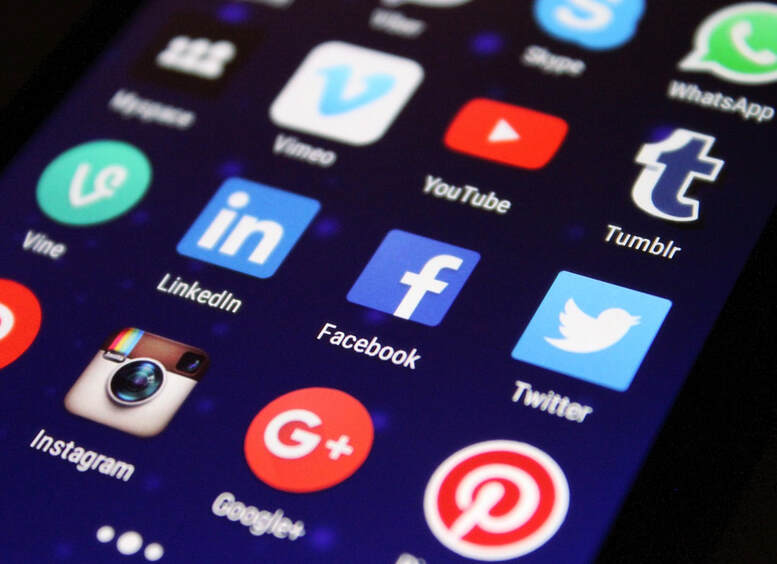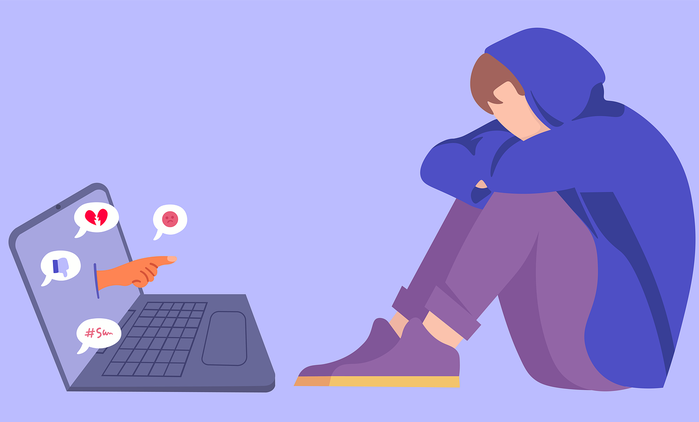Correlations Between Personality Traits, Social Media Use, and Depression
In today’s digital age, nearly everyone carries a mobile device with them, often with popular social media apps like Instagram, Facebook, or Twitter. Most people have had some sort of exposure to the extreme prevalence of social media. Unfortunately, however, excessive usage of social media can potentially cause significant mental and developmental effects such as depression, which can be important to consider for young adults whose brains are still developing. However, the consequences may vary for different people, especially if one is more prone to mental health issues related to social media use. Could certain personality traits put certain individuals at a greater risk of depression through social media use?
In a 2022 study conducted at the University of Arkansas, researchers attempted to discover the link between various personality traits and the likelihood of developing depression through social media use. 18 to 30-year-old participants in the United States across a range of demographics began as nondepressed, as determined by a questionnaire related to their feelings or depressive experiences within the past two weeks. They were then evaluated based on five different personality traits and the amount of time they spent on social media. These traits in question included conscientiousness, extraversion, agreeableness, and neuroticism. After a period of six months, the participants’ depression was re-evaluated using the same questionnaire used at the beginning of the experiment.
In a 2022 study conducted at the University of Arkansas, researchers attempted to discover the link between various personality traits and the likelihood of developing depression through social media use. 18 to 30-year-old participants in the United States across a range of demographics began as nondepressed, as determined by a questionnaire related to their feelings or depressive experiences within the past two weeks. They were then evaluated based on five different personality traits and the amount of time they spent on social media. These traits in question included conscientiousness, extraversion, agreeableness, and neuroticism. After a period of six months, the participants’ depression was re-evaluated using the same questionnaire used at the beginning of the experiment.
Image Source: HtcHnm
Following the assessment of the participants after six months, there was a surprising correlation between social media use and developing depression in general. Of all participants, 9.5% developed depression when they completed the questionnaire again, and an increase in social media use was generally shown to be correlated with higher rates of depression. Most notably, however, high levels of neuroticism were strongly associated with a higher risk of depression, while agreeableness was associated with a lower risk. This means that for people associated with extreme neuroticism, social media was correlated with more of a negative effect on mental health. Interestingly, however, the remaining three personality traits were found to have no significant effect on the risk of depression. From these results, it may appear that specific personality traits can amplify or diminish the depressive effects of social media use.
While this study does provide insight into the potential link between personality and developing depression from social media use, it does have its limitations. It is especially important to note that the results were correlational and not causational. This means it cannot be definitively concluded that certain personality traits were directly and solely responsible for a greater or less likelihood of developing depression. For instance, this study was taken over the course of six months with an age range of only 18-30, and also did not identify the specific activities people did on social media. Therefore, it could have been activities that led to increased depression as opposed to personality traits. To improve, future studies could examine social media over a longer time, or track what exactly was done on social media. Despite these limitations, this study sheds light on the potential effects that excessive social media use can have on mental well-being and to, perhaps, be particularly wary if one’s own personality might make them more at risk.
While this study does provide insight into the potential link between personality and developing depression from social media use, it does have its limitations. It is especially important to note that the results were correlational and not causational. This means it cannot be definitively concluded that certain personality traits were directly and solely responsible for a greater or less likelihood of developing depression. For instance, this study was taken over the course of six months with an age range of only 18-30, and also did not identify the specific activities people did on social media. Therefore, it could have been activities that led to increased depression as opposed to personality traits. To improve, future studies could examine social media over a longer time, or track what exactly was done on social media. Despite these limitations, this study sheds light on the potential effects that excessive social media use can have on mental well-being and to, perhaps, be particularly wary if one’s own personality might make them more at risk.
Featured Image Source: Pixelkult
RELATED ARTICLES
|
Vertical Divider
|
Vertical Divider
|
Vertical Divider
|






